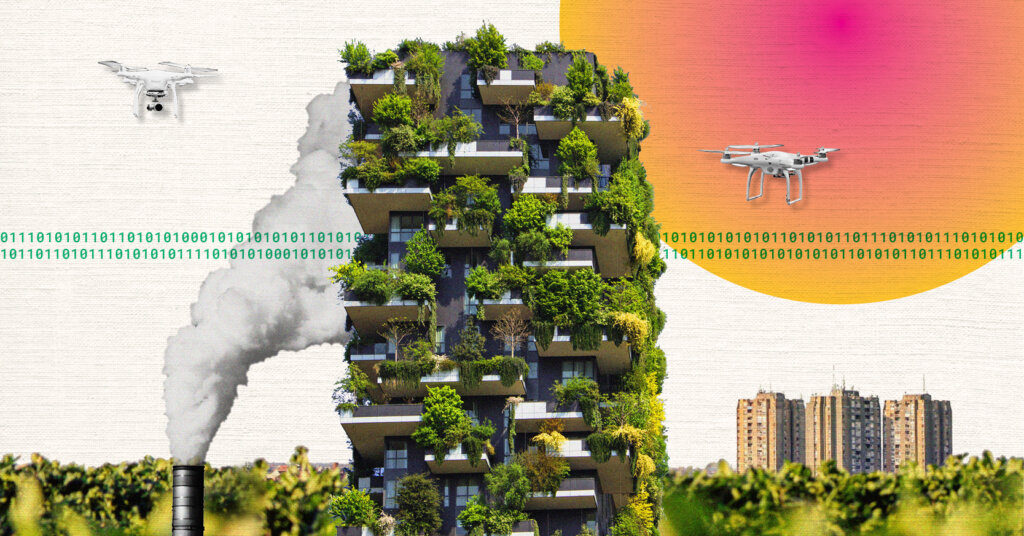Home » Green Horizons: Five Promising Trends in Cleantech
Green Horizons: Five Promising Trends in Cleantech

The climate challenges of 2024 were severe, marked by record high temperatures, catastrophic floods, and geopolitical tensions complicating global net-zero initiatives. Nonetheless, signs of progress are emerging in the realm of cleantech and renewable energy. The growing affordability of renewables suggests that Canada could achieve 100% renewable electricity by 2035. Global clean energy investment surpassed $3 trillion in 2023, and the EU Parliament took a significant step by criminalizing ecosystem destruction.
The cleantech sector is booming, projected to reach $134.9 billion by 2030, with innovative startups addressing a range of climate issues. Here are five noteworthy solutions that aim to tackle critical environmental problems.
1. Advanced Fire Prevention Technology:
Wildfires, exacerbated by climate change, wreaked havoc in Canada in 2023, burning over 15 million hectares and releasing vast amounts of carbon dioxide. Companies like BurnBot are utilizing sustainable forest management techniques, employing remote-controlled vehicles for safe prescribed burns. Additionally, B.C.-based SenseNet harnesses AI and data from satellites and ground sensors to detect wildfires in nascent stages, potentially reducing greenhouse gas emissions significantly. This proactive approach could save emissions equivalent to electrifying Canada's entire transportation sector by preventing just three megafires annually.
2. Carbon Utilization Innovations:
Capturing excess carbon dioxide is essential for achieving net-zero targets. The current solutions are to either store the carbon or repurpose it for other uses. Electrochemical processes can convert CO2 into valuable products such as calcium carbonate and ethylene. Toronto's CERT Systems, recognized as an XPrize finalist, developed a low-energy process to transform CO2 into ethylene, aiming to reduce emissions significantly. This innovation reflects the growing market for transformed carbon, which is being utilized to create various consumer products.
3. Sustainable Construction Practices:
The construction industry is a major contributor to global greenhouse gas emissions, responsible for roughly 37%. To meet climate targets, the sector must transition to net zero by 2050. Strategies like Passive House standards prioritize insulation and energy efficiency while mass timber offers a sustainable alternative to concrete and steel, reducing embodied emissions. Toronto-based Morgan Solar's AI-powered window shades also enhance energy conservation, showcasing the availability of diverse strategies to minimize the carbon footprint of buildings.
4. Resilient City Planning:
2024's devastating floods highlight the need for improved urban planning amidst climate change. RUNWITHIT Synthetics from Edmonton has developed AI-powered 3D digital models or "digital twins" of over 200 cities to simulate various scenarios, including natural disasters and shifts in energy technology. These models provide cities with crucial information to navigate climate challenges and inspire proactive investments in resilience.
5. Navigating FOAK Funding Challenges:
Funding for First of a Kind (FOAK) technologies is a critical hurdle in the cleantech sector, where substantial capital is needed to scale up innovative solutions. Leah Perry of MaRS emphasizes approaching fundraising with creativity. Successful FOAK projects often demonstrate quick returns on investment, highlighting that solutions can solve climate issues while also being cost-effective.
The upcoming MaRS Climate Impact conference on December 3-4 will further explore these developments, showcasing how innovative approaches and technologies are paving the way for a more sustainable future.
MaRS Discovery District
https://www.marsdd.com/
MaRS is the world's largest urban innovation hub in Toronto that supports startups in the health, cleantech, fintech, and enterprise sectors. When MaRS opened in 2005 this concept of urban innovation was an untested theory. Today, it’s reshaping cities around the world. MaRS has been at the forefront of a wave of change that extends from Melbourne to Amsterdam and runs through San Francisco, London, Medellín, Los Angeles, Paris and New York. These global cities are now striving to create what we have in Toronto: a dense innovation district that co-locates universities, startups, corporates and investors. In this increasingly competitive landscape, scale matters more than ever – the best talent is attracted to the brightest innovation hotspots.


